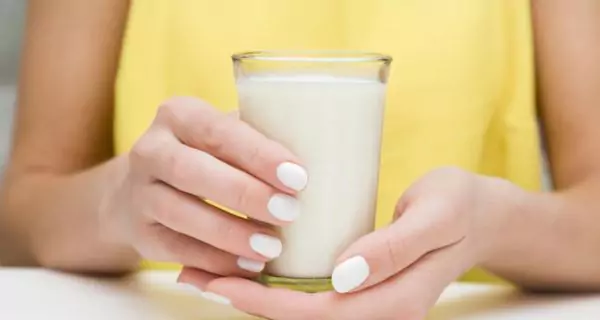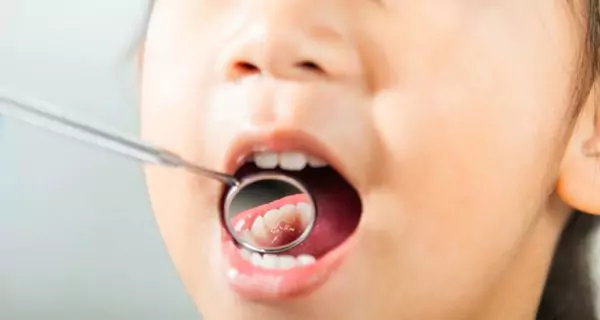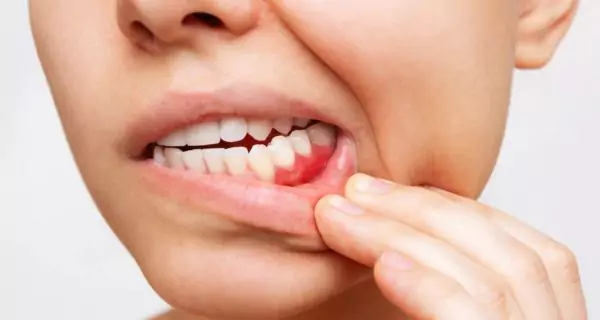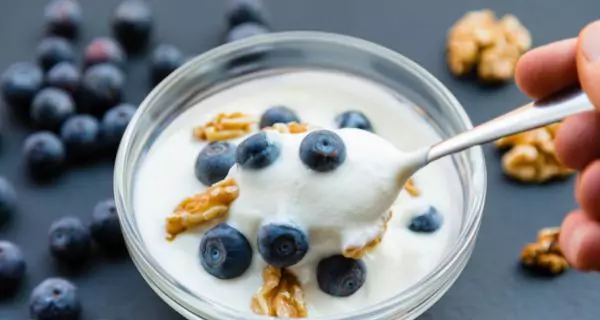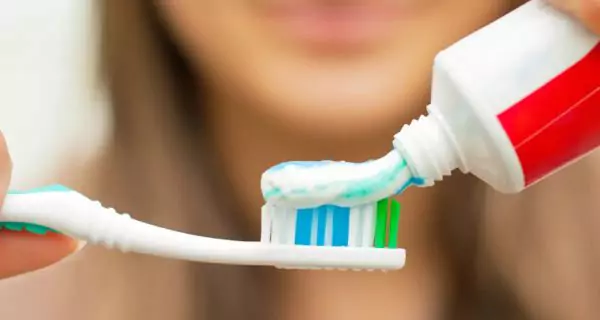Last Updated on: 19th September 2025, 12:31 pm
When we think of oral hygiene, we often think of brushing, flossing, and, perhaps, mouthwash. While those habits are essential, bacteria also play an important role in mouth health.
Just like your gut, your mouth has its own community of bacteria. Some are good and some are not so good. Maintaining a balance between is essential for healthy teeth, strong gums, and fresh breath.
That’s where oral probiotics come in. These beneficial bacteria help maintain the mouth’s natural defenses. But there’s an important detail: the probiotics your mouth needs differ from those your gut requires. After all, they live in completely different environments.
Oral probiotics are fast gaining attention in dental care for their ability to help prevent cavities, reduce gum inflammation and fight bad breath. In this article, we explain how they work, the benefits they bring to your teeth, gums, and tongue, and how to choose the right ones for your daily routine.
What are probiotics?
Probiotics are live microorganisms – mainly “good” bacteria – that provide various health benefits when consumed in adequate amounts. They exist naturally in the human digestive tract and are also found in fermented foods and beverages or taken as supplements. When introduced into the body, they help restore and maintain a balanced microbiota, the community of microorganisms that live in various parts , such as the gut, skin, and mouth.
General health benefits of probiotics
Probiotics play essential roles throughout the body and can make a big difference in our overall well-being.
- Gut health: Probiotics are most recognized for their role in balancing gut flora, promoting digestion, and supporting nutrient absorption.
- Immune system: They help stimulate the body’s natural defenses, making it easier to fight off infections and inflammation.
- Mental health: Emerging research shows that gut bacteria can influence mental health through the gut-brain axis, potentially affecting mood, stress, and anxiety levels.
- Digestive health: Probiotics help manage common digestive issues such as bloating, constipation, and diarrhea by improving intestinal function.
Are there any risks to taking probiotics?
For most individuals, probiotics are safe and beneficial. Some may experience temporary side effects such as gas or bloating, especially when first introduced. Those with compromised immune systems or pregnant individuals should consult a healthcare provider before starting a probiotic regimen.
Probiotics in oral health: the benefits for teeth and gums
Our mouth is home to a whole ecosystem of bacteria. When that delicate balance is disrupted, issues like cavities, bad breath, and gum diseases such as gingivitis and periodontitis can start to develop.
Probiotics work by introducing “good” bacteria into this environment, helping to restore and maintain that healthy balance. In doing so, they naturally support your oral health by creating a protective barrier that slows down the growth of harmful bacteria and reduces the risk of common dental problems.
How do oral probiotics work?
Probiotic bacteria benefit your oral health in several ways:
- They block harmful bacteria from sticking to your teeth and gums by physically binding to them and making it harder for them to take hold.
- They produce antimicrobial substances like hydrogen peroxide, bacteriocins, and natural acids that kill or slow the growth of bad bacteria.
- They support your immune system by helping to eliminate viruses and reduce inflammation.
- They raise the pH in your mouth, making it less acidic, which helps prevent tooth decay and enamel erosion.
These “good bacteria” create a more balanced, healthier environment in your mouth; it can make a noticeable difference in how your teeth, gums, and breath feel.
Benefits of oral probiotics
Not all probiotics have the same effect: some are better for reducing inflammation, while others target bad breath or help prevent cavities. Here’s a breakdown of which probiotic strains are best suited for each oral health concern:
- Preventing cavities: Tooth decay happens when harmful bacteria in your mouth produce acids that damage your tooth enamel. Certain probiotics help by lowering the number of these bacteria and balancing the oral environment.
Helpful probiotic strains:
- Streptococcus salivarius M18: reduces plaque, neutralizes acids, and prevents the growth of cavity-causing bacteria.
- Streptococcus salivarius M18: reduces plaque, neutralizes acids, and prevents the growth of cavity-causing bacteria.
- Ligilactobacillus salivarius: lowers harmful bacteria levels and helps protect against cavities.
- Ligilactobacillus salivarius: lowers harmful bacteria levels and helps protect against cavities.
- Lacticaseibacillus paracasei: binds to cavity-causing bacteria and prevents them from attaching to teeth.
- Reducing gum inflammation and gingivitis: Inflamed, bleeding gums are often the first signs of gingivitis. Probiotics help by calming inflammation and encouraging a healthier balance of bacteria near the gumline.
Helpful probiotic strains:
- Limosilactobacillus reuteri: shown to reduce gum inflammation and improve periodontal pocket depth.
- Limosilactobacillus reuteri: shown to reduce gum inflammation and improve periodontal pocket depth.
- Lactobacillus rhamnosus: supports healthy gums by fighting bacteria linked to gingivitis.
- Lactobacillus rhamnosus: supports healthy gums by fighting bacteria linked to gingivitis.
- Streptococcus salivarius M18: protects gum tissue and helps reduce inflammation.
- Streptococcus salivarius M18: protects gum tissue and helps reduce inflammation.
- Ligilactobacillus salivarius: supports gum resistance and helps prevent gum disease.
- Fighting bad breath (halitosis): Bad breath is often caused by bacteria that produce sulfur compounds on the tongue and around the gums. Certain probiotics can crowd out those bacteria and make your breath fresher.
Helpful probiotic strains:
- Streptococcus salivarius K12: one of the best-known strains for reducing bad breath by targeting odor-causing bacteria.
- Streptococcus salivarius K12: one of the best-known strains for reducing bad breath by targeting odor-causing bacteria.
- Ligilactobacillus salivarius: helps improve breath and kills bacteria that produce foul odors.
- Protecting against plaque buildup: Plaque is a sticky film of bacteria that can lead to both cavities and gum disease. Some probiotics reduce the bacteria that cause plaque and help keep teeth cleaner.
Helpful probiotic strains:
- Lactobacillus reuteri: reduces plaque and helps restore a healthy bacterial balance.
- Lactobacillus reuteri: reduces plaque and helps restore a healthy bacterial balance.
- Streptococcus salivarius M18: produces enzymes that break down plaque and prevent it from sticking to teeth.
- Streptococcus salivarius M18: produces enzymes that break down plaque and prevent it from sticking to teeth.
- Lactobacillus rhamnosus: shown to reduce plaque accumulation and support gum health.
- Improving tongue health: The tongue hosts millions of bacteria. Probiotics help manage the bacterial load on the tongue, reducing the risk of oral thrush and promoting overall oral cleanliness.
Helpful probiotic strains:
- Limosilactobacillus reuteri: helps reduce Candida and improves tongue hygiene.
- Lacticaseibacillus paracasei: supports overall oral microbial balance, reducing fungal infections.
- Lactobacillus rhamnosus: may help protect against yeast overgrowth in the mouth.
- Limosilactobacillus reuteri: helps reduce Candida and improves tongue hygiene.
How to use probiotics for oral health
Whether through diet, supplements, or oral care products, the key to making probiotics work is choosing the right sources and using them consistently. This should help restore and maintain a healthy balance of bacteria in your mouth, giving your teeth and gums extra protection naturally.
Boost your oral health with probiotic foods
One of the most natural ways to support your oral microbiome is through what you eat. Probiotic-rich foods contain live, beneficial bacteria that promote gut health while having a positive impact on your mouth.
Try adding the following to your daily meals:
- Yogurt (with “live and active cultures”): helps deliver good bacteria. Choose plain, unsweetened varieties to avoid feeding bad bacteria with sugar.
- Kefir: a fermented milk drink loaded with diverse probiotic strains.
- Sauerkraut and kimchi: fermented vegetables that support digestion and overall bacterial balance.
- Miso and natto: traditional soy-based foods rich in probiotics.
- Kombucha: a fermented tea that can offer a refreshing source of live cultures, just watch out for added sugars.
Tip: Combine these foods with prebiotics like garlic, onions, bananas, and oats to help feed the good bacteria and keep them strong.
Add targeted support with oral probiotic supplements
If probiotic foods aren’t enough, or if you’re looking for something more specific to oral care, supplements designed for the mouth can be a great addition to your routine.
Here are some of the most effective delivery methods:
- Probiotic lozenges: They dissolve slowly in your mouth, allowing good bacteria to settle directly on your teeth, gums, and tongue.
- Probiotic chewing gum: Easy and discreet, they release probiotics while you chew, reaching key areas in the mouth.
- Probiotic mouth rinses or sprays: These help coat your entire mouth with beneficial bacteria and freshen your breath.
- Probiotic capsules/tablets: While designed for gut health, some are formulated to support the oral and digestive systems together.
Tip: For the best results, take your oral probiotic after brushing your teeth, ideally in the morning or at bedtime, so the bacteria stays in your mouth longer and do their work without interruption.
Oral hygiene products with probiotics
Nowadays, you can also find toothpastes, mouthwashes, and sprays that include probiotics in their formulas. These products help strengthen your oral microbiota during brushing and rinsing.
They’re especially useful for people who struggle with chronic gum inflammation or bad breath, as they offer localized support right where it’s needed.
Tip: It’s recommended to use these products twice a day, as part of your full oral hygiene routine.
Getting the best out of oral probiotics
Once probiotics become part of your oral care routine, it’s important to understand what changes to expect and how to get the most out of them. With so many options , knowing how to identify real results and select the right product can make all the difference.
Signs that probiotics are improving your oral health
When used consistently, probiotics can bring good changes to your oral health. You may begin to see results in just a few weeks, such as:
- Healthier gums: Less swelling, bleeding, or redness may mean your gums are responding positively.
- Fresher breath: A decrease in bad breath often signals that harmful bacteria are being outnumbered by the good ones.
- Fewer cavities and less sensitivity: A stronger, more balanced microbiome helps protect your teeth from decay and enamel erosion.
These improvements take time, so be patient and stay consistent.
Tips for getting the most out of oral probiotics
To make sure your probiotics are working at their full potential, keep these simple practices in mind:
- Be consistent: Use them daily for long-term results. Skipping days reduces their effectiveness.
- Don’t skip brushing and flossing: Probiotics support oral health, but don’t replace basic hygiene.
- Follow directions: Take supplements as instructed, especially lozenges and mouth rinses, which need time in the mouth to work.
- Avoid antibacterial mouthwashes: These can wipe out both good and bad bacteria. If you use one, wait a few hours before taking probiotics.
How to choose the right oral probiotic
With so many products on the market, choosing the right one can feel overwhelming. Here are some quick tips:
- Look for specific strains like Streptococcus salivarius K12 (BLIS K12), M18 (BLIS M18), or Lactobacillus reuteri, these are well-studied for oral health benefits.
- Check the label for “live and active cultures” to ensure the probiotics are effective.
- Prefer lozenges or chewable tablets, which stay in the mouth longer and allow better colonization.
- Choose brands that clearly indicate oral health benefits, not just general gut health.
Taking care of your mouth isn’t just about brushing and flossing. It’s also about keeping the right balance of bacteria. Probiotics support your smile by helping reduce cavities, gum issues, and even bad breath in a natural way.
By adding the right probiotics to your routine – along with good daily habits and regular dental visits – you’re giving your mouth extra protection and support. A simple step can make a big difference in keeping your smile healthy and fresh.
Frequently Asked Questions
Can I just eat yogurt to improve my oral health, or do I need specific oral probiotics?
How long does it take for oral probiotics to work?
Can probiotics replace brushing and flossing?
Can kids use oral probiotics too?
What’s the difference between gut probiotics and oral probiotics?
Share
References
1. Brown, S. (2024, 12 December). Can probiotics help with gum disease? WebMD. https://www.webmd.com/oral-health/probiotics-gum-disease
2. Castro, S., Garay, S., Espinoza, C. F., Medina, J., Mendoza, R., Mauricio, F., & Mayta, T. F. (2024). Exploring the Potential of Probiotics in Dentistry: A Literature Review. Odovtos – International Journal Of Dental Sciences, 24-36. https://doi.org/10.15517/ijds.2024.59138
3. Chugh, P., Dutt, R., Sharma, A., Bhagat, N., & Dhar, M. S. (2020). A critical appraisal of the effects of probiotics on oral health. Journal Of Functional Foods, 70, 103985. https://doi.org/10.1016/j.jff.2020.103985
4. Haukioja A. (2010). Probiotics and oral health. European journal of dentistry, 4(3), 348–355. https://pmc.ncbi.nlm.nih.gov/articles/PMC2897872/
5. Inchingolo, F., Inchingolo, A. M., Malcangi, G., De Leonardis, N., Sardano, R., Pezzolla, C., de Ruvo, E., Di Venere, D., Palermo, A., Inchingolo, A. D., Corriero, A., & Dipalma, G. (2023). The Benefits of Probiotics on Oral Health: Systematic Review of the Literature. Pharmaceuticals (Basel, Switzerland), 16(9), 1313. https://doi.org/10.3390/ph16091313
6. Rad, A. H., Pourjafar, H., & Mirzakhani, E. (2023). A comprehensive review of the application of probiotics and postbiotics in oral health. Frontiers In Cellular And Infection Microbiology, 13. https://doi.org/10.3389/fcimb.2023.1120995
-
Dr. Yeidy Carolina Mesa [Author]
DDS Yeidy Carolina Mesa Passionate Dentist | Advocate for Accessible Oral Health Education Graduating from Universidad CES in 2022, I am a dedicated general dentist with a lifelong passion for helping others and making a meaningful impact in the world. My journey into dentistry began at the age of 7, inspired by my own experience with braces and overcoming a fear of the dentist. This personal journey shaped my mission to help patients conquer their own dental anxieties and embrace a healthier,...
View all posts
-
Nayibe Cubillos M. [Medical Reviewer]
Pharmaceutical Chemestry |Pharmaceutical Process Management | Pharmaceutical Care | Pharmaceutical Services Audit | Pharmaceutical Services Process Consulting | Content Project Manager | SEO Knowledge | Content Writer | Leadership | Scrum Master
View all posts
A healthcare writer with a solid background in pharmaceutical chemistry and a thorough understanding of Colombian regulatory processes and comprehensive sector management, she has significant experience coordinating and leading multidisciplina...




